BMW 2 Series Active Tourer vs Kia Niro - Differences and prices compared
Compare performance (326 HP vs 180 HP), boot space and price (31000 £ vs 29100 £) at a glance. Find out which car is the better choice for you – BMW 2 Series Active Tourer or Kia Niro?
Costs and Efficiency:
When it comes to price and running costs, the biggest differences usually appear. This is often where you see which car fits your budget better in the long run.
Kia Niro has a hardly perceptible advantage in terms of price – it starts at 29100 £, while the BMW 2 Series Active Tourer costs 31000 £. That’s a price difference of around 1894 £.
Fuel consumption also shows a difference: Kia Niro manages with 2.40 L and is therefore evident more efficient than the BMW 2 Series Active Tourer with 2.90 L. The difference is about 0.50 L per 100 km.
As for range, the BMW 2 Series Active Tourer performs clearly perceptible better – achieving up to 82 km, about 20 km more than the Kia Niro.
Engine and Performance:
Under the bonnet, it becomes clear which model is tuned for sportiness and which one takes the lead when you hit the accelerator.
When it comes to engine power, the BMW 2 Series Active Tourer has a convincingly edge – offering 326 HP compared to 180 HP. That’s roughly 146 HP more horsepower.
In acceleration from 0 to 100 km/h, the BMW 2 Series Active Tourer is convincingly quicker – completing the sprint in 5.50 s, while the Kia Niro takes 9.90 s. That’s about 4.40 s faster.
In terms of top speed, the BMW 2 Series Active Tourer performs distinct better – reaching 238 km/h, while the Kia Niro tops out at 185 km/h. The difference is around 53 km/h.
There’s also a difference in torque: BMW 2 Series Active Tourer pulls decisively stronger with 477 Nm compared to 265 Nm. That’s about 212 Nm difference.
Space and Everyday Use:
Whether family car or daily driver – which one offers more room, flexibility and comfort?
Both vehicles offer seating for 5 people.
In curb weight, Kia Niro is barely noticeable lighter – 1474 kg compared to 1545 kg. The difference is around 71 kg.
In terms of boot space, the BMW 2 Series Active Tourer offers minimal more room – 470 L compared to 451 L. That’s a difference of about 19 L.
In maximum load capacity, the BMW 2 Series Active Tourer performs slight better – up to 1455 L, which is about 10 L more than the Kia Niro.
When it comes to payload, BMW 2 Series Active Tourer barely noticeable takes the win – 505 kg compared to 466 kg. That’s a difference of about 39 kg.
Who wins the race?
The BMW 2 Series Active Tourer proves to be leaves the rival little chance and therefore becomes our DriveDuel Champion!
BMW 2 Series Active Tourer is the better all-rounder in this comparison.
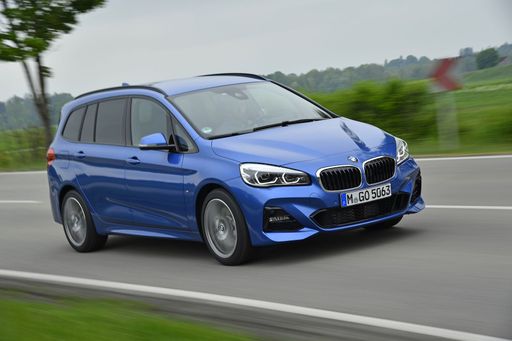
BMW 2 Series Active Tourer
Costs and Consumption
View detailed analysis
Engine and Performance
View detailed analysis
Dimensions and Body
View detailed analysis
BMW 2 Series Active Tourer
The BMW 2 Series Active Tourer turns the family MPV into something you’d actually want to park outside a café, pairing compact practicality with surprisingly premium cabin flair. It won’t thrill like a sports car, but it drives with the composed poise you expect from the badge and keeps daily life easy and un-fussy.
details



Kia Niro
The Kia Niro blends clever packaging and modern styling into a compact crossover that’s refreshingly sensible for daily life. It’s comfortable, economical and packed with user‑friendly tech, so if you want a fuss‑free family car with a touch of green credibility, the Niro is worth a test drive.
details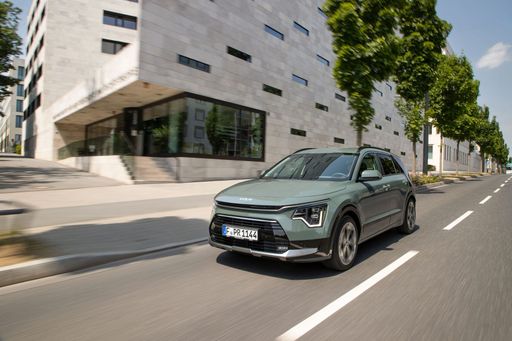
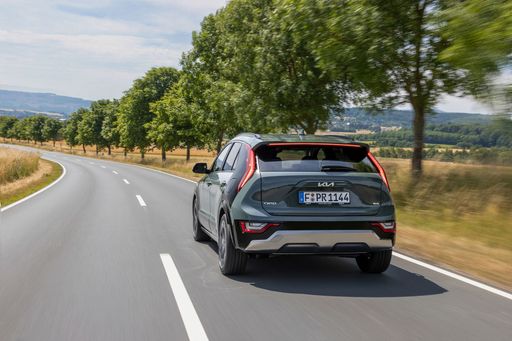
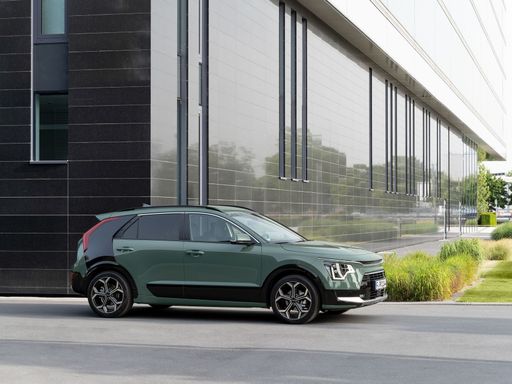
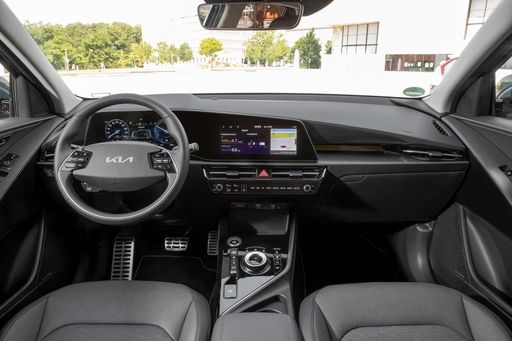
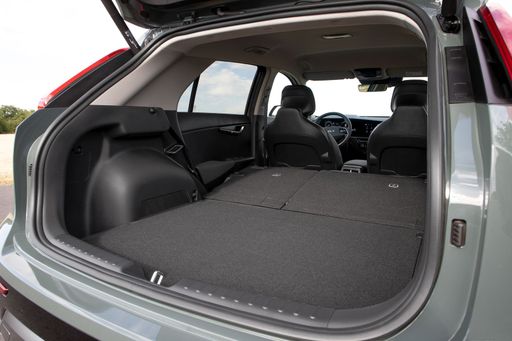

|

|
|
|
|
Costs and Consumption |
|
|---|---|
|
Price
31000 - 48000 £
|
Price
29100 - 38600 £
|
|
Consumption L/100km
2.9 - 6.2 L
|
Consumption L/100km
2.4 - 4.9 L
|
|
Consumption kWh/100km
-
|
Consumption kWh/100km
-
|
|
Electric Range
82 km
|
Electric Range
57 - 62 km
|
|
Battery Capacity
14.20 kWh
|
Battery Capacity
1.3 - 11.1 kWh
|
|
co2
65 - 140 g/km
|
co2
53 - 111 g/km
|
|
Fuel tank capacity
45 - 54 L
|
Fuel tank capacity
37 - 42 L
|
Dimensions and Body |
|
|---|---|
|
Body Type
MPV
|
Body Type
SUV
|
|
Seats
5
|
Seats
5
|
|
Doors
5
|
Doors
5
|
|
Curb weight
1545 - 1920 kg
|
Curb weight
1474 - 1594 kg
|
|
Trunk capacity
406 - 470 L
|
Trunk capacity
348 - 451 L
|
|
Length
4386 mm
|
Length
4420 mm
|
|
Width
1824 mm
|
Width
1825 mm
|
|
Height
1576 mm
|
Height
1545 mm
|
|
Max trunk capacity
1370 - 1455 L
|
Max trunk capacity
1342 - 1445 L
|
|
Payload
465 - 505 kg
|
Payload
466 kg
|
Engine and Performance |
|
|---|---|
|
Engine Type
Petrol, Petrol MHEV, Diesel, Diesel MHEV, Plugin Hybrid
|
Engine Type
Full Hybrid, Plugin Hybrid
|
|
Transmission
Automatic
|
Transmission
Automatic
|
|
Transmission Detail
Dual-Clutch Automatic
|
Transmission Detail
Dual-Clutch Automatic
|
|
Drive Type
Front-Wheel Drive, All-Wheel Drive
|
Drive Type
Front-Wheel Drive
|
|
Power HP
122 - 326 HP
|
Power HP
138 - 180 HP
|
|
Acceleration 0-100km/h
5.5 - 10.3 s
|
Acceleration 0-100km/h
9.9 - 11.4 s
|
|
Max Speed
195 - 238 km/h
|
Max Speed
170 - 185 km/h
|
|
Torque
230 - 477 Nm
|
Torque
265 Nm
|
|
Number of Cylinders
3 - 4
|
Number of Cylinders
4
|
|
Power kW
90 - 240 kW
|
Power kW
102 - 132 kW
|
|
Engine capacity
1499 - 1998 cm3
|
Engine capacity
1580 cm3
|
General |
|
|---|---|
|
Model Year
2024 - 2025
|
Model Year
2025
|
|
CO2 Efficiency Class
E, D, B
|
CO2 Efficiency Class
C, B
|
|
Brand
BMW
|
Brand
Kia
|
What drive types are available for the BMW 2 Series Active Tourer?
Available configurations include Front-Wheel Drive or All-Wheel Drive.
The prices and data displayed are estimates based on German list prices and may vary by country. This information is not legally binding.
